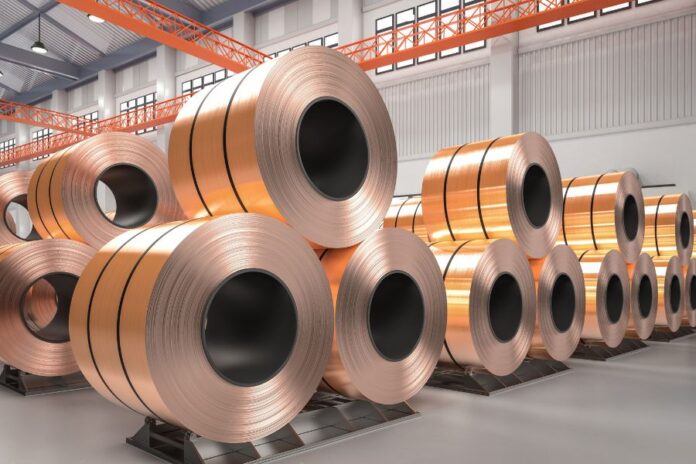President Donald Trump said on Tuesday he would announce a 50 percent tariff on copper imports, aiming to boost U.S. production of the metal used in electric vehicles, military equipment, power systems, and consumer goods.
He made the remarks during a cabinet meeting at the White House but did not say when the tariffs would take effect.
After Trump spoke, U.S. Commerce Secretary Howard Lutnick said in a television interview that the tariffs could be implemented by the end of July or on August 1. He said Trump would post further details on his social media account later in the day.
As of Wednesday evening, Trump had not made a formal announcement.
Copper futures on U.S. markets rose more than 12 percent after the news, reaching a record high. The tariff rate and timing were earlier than expected by many in the industry.
Several mining companies, countries, and trade groups said they were waiting for more clarity.
The U.S. imports about half of its copper each year and operates only three smelters. A number of proposed mining projects have faced delays and opposition, including the Resolution Copper project in Arizona and the Pebble Mine in Alaska.
Freeport-McMoRan, the largest U.S. copper producer, saw its shares rise over 5 percent during trading on Tuesday. The company, based in Phoenix, produced 571,530 metric tonnes of copper in the U.S. last year.
The new tariff could affect Chile, Canada, and Mexico, which were the top suppliers of copper and copper products to the U.S. in 2024. All three countries have free trade agreements with the U.S. and have told the administration that their exports do not harm U.S. interests.
Chile’s Foreign Ministry said it had not received formal communication about the tariffs. The president of Canada’s mining association said the tariff could impact smelters such as Glencore’s Horne facility in Quebec.
In February, the administration launched a Section 232 investigation into copper imports. The review was expected to conclude in November, but Lutnick said it had already been completed.
He said the goal is to bring copper production back to the U.S., calling the metal essential for the industrial sector.
Some in the industry have warned the tariff could raise costs for U.S. companies that use copper, especially as the country is not yet able to meet its own demand. Major copper buyers are watching for official details to understand the scope and product coverage of the planned duties.




